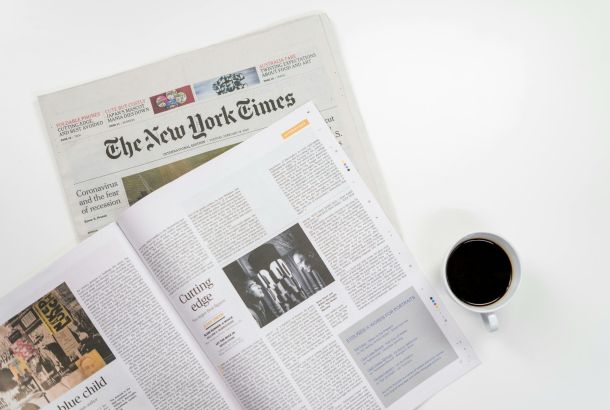How do we tackle the student loneliness crisis?

At a university where 45,000 students cross paths every day, it should be impossible to feel lonely.
In March, a campaign video for the University of Manchester Student Union elections revealed that, when asked what the biggest problem facing students was, most candidates answered simply, that it was loneliness. Loneliness can broadly be defined as the feeling generated by a lack of connection. I find the video very depressing. The idea of collective loneliness is oxymoronic and senseless.
The student candidates are not the only ones to pick up on this phenomenon – the government has too. The Minister for Loneliness has taken to placing adverts in the gaps between Instagram stories: “Loneliness. It’s a part of life. Let’s talk about it.” One such advert shows a twenty-something girl, alone at a London bus stop, dressed in a pastel knitted scarf and a puffer jacket. Another advert depicts a boy, at the cusp of adulthood, with a box of kitchen utensils, getting ready to move out of his family home. These adverts seem to suggest that loneliness is transitory, that it’s a phase, like the wait for the bus it won’t last. The loneliness depicted is specifically urban, and it targets young people.
But this is a simplification. It’s dismissive. It fails to recognise that the ‘loneliness’ the government wants to tackle is a dangerous cocktail of social anxiety, the disappearance of leisure activities and an increasing sense of dislocation. It might not just be experienced whilst in-between places, it can become a permanent residency.
Despite its succinct advice, the advert feels pitifully ineffective: how on earth is an ad campaign going to provide structure for those most vulnerable and alone? The internet, which is a large reason for our isolation and loneliness does not seem like a suitable place to address the issue. Loneliness can be remedied by connection and community; a digital ad campaign is unfortunately providing none of this. Social interactions are tangible, they need spaces, where people can spontaneously react, bouncing off each other. It is these social spaces, technically referred to as ‘third places’, spaces that are not the workplace or the home, that are missing from our landscapes. For many people, especially students, the pub is probably the most common third space. But the draw of alcoholic social lubrication is not the only option, community-led initiatives are providing new social spaces in our increasingly isolated landscape.
On Saturday night, I walk in late to Levenshulme Old Library and the place is decked out with hand-crafted bunting, made from scraps of paper covered in scribbled confessions. I’m at Blether, an event that is hard to classify, but broadly fits into the description of a community-led open mic night. To blether, I am informed, is a Scottish verb meaning ‘to talk in a long-winded way without making sense’. Blether takes place around once a month when the organizers ‘have got the time’ alongside their numerous other forms of community work.
I’m speaking to Kate Ireland, a poet and performer who set up Blether. Kate is tall, generous in conversation and the most experienced performer in the line-up. Her voice is deep, rich and unmistakably Glaswegian.
Kate explains to me: ‘I needed a place for me and my mates to go’, whilst studying for her masters in London. Kate goes on, ‘Blether functions in lieu of the social club,’ and is a collective effort to ‘counter the loneliness of modern living’. Yet Blether is nothing like what I imagine a social club would be like, it is filled with poets and aspiring performers. There’s not that many men and everyone seems to be under 30.
I’m reminded: ‘These years are a blessing; a purgatory of cheap wine and unwashed dishes. They’re the weeks that feel full and at the same time, almost empty’, in El Garrard’s poem, These are the days. With lyricism and humour their poem captures the epic highs and lows of your twenties set around ‘a three-and-a-half legged table, [us] Godless disciples in the age of Twitter truth and Instagram fable.’
To its strength, much of Blether’s work focuses on the mundane, the ways we act without trying to. The doom scrolling in bed, trips to the job centre or the ‘Serious Fraud Office’, and the difficulty of tackling the washing up you’ve left standing out for too long. From the familiarity and playfulness of the pieces, it is clear most of the poets write about loneliness and unmoored adulthood from existence.
Yet, the style and topics of performances vary, and there are musicians as well as poets. Following on from El, after hammering various nails into a plank of wood, in one piece a performer rolls around on the floor slowly, as if trying to seduce the microphone. This breaks me out of the lulling comfort of poetry.
Apart from one cover of a song I watch, all the work is original. Kate tells me ‘There are always first-time performers’. I can understand why, the only screens I see out during performances are those recording them, and the only chatter I hear is in the intervals. The crowd is filled with current and previous performers, accompanied by their friends and family. These small details mean that the experiences of the performers and audience are more in sync.
The proximity of performers and audience members at Blether is literal as well as metaphorical. There are no dressing rooms, and the stage is the same height as everything else in the converted library space. The front rows are made up of people sitting on deflated donut-shaped cushions, reminding me of primary school assemblies and in-class performances. The main difference seems to be that everyone at this performance is of legal drinking age. Later, El tells me how ‘held [they] feel up on the stage’. They explain that Blether is trying to recreate the support art can receive in childhood, something they practice in their work as a teacher, pinning work of all kinds up on the wall.
In the interval, everyone is encouraged to confess using scrap paper and felt tip pens, adding them onto the existing bunting that decorates the high Victorian arches of the room. This lowers the ceiling, and alongside the bedside lamps that light the space cultivates more of a bedroom-y feel. The room feels small and intimate. People switch between conversations and looking up, attempting to read the anonymous admissions.
The night ends with Kate’s performance. She begins her set with a poem which the audience repeats back, like a catechism. It begins ‘I know things have been a wee bit shite lately’ and continues, the audience mimicking her Glaswegian rhymes: ‘But everything is going to be all right’. Kate’s performance is great; I feel moved by the sincerity of her poems on friendship.
The last time I was here the night ended with an impromptu performance of Robbie Williams’ Angels. They did something right there; it is impossible to sing Angels with a straight face, especially when you are duetting with forty other people.
Tonight, I leave feeling equally uplifted. I’ve seen abstracted bits of myself in the performances. I’ve engaged with familiar problems with more distance, and I’ve enjoyed the playfulness of the evening. It’s not a complete fix, loneliness isn’t a box-ticking activity resolved by an evening of fun. Then again, this isn’t a bad place to start.







